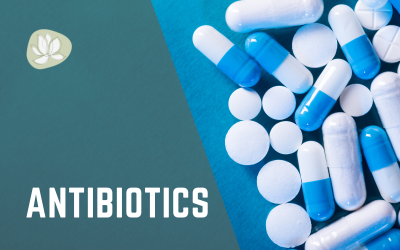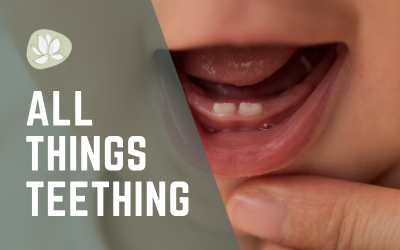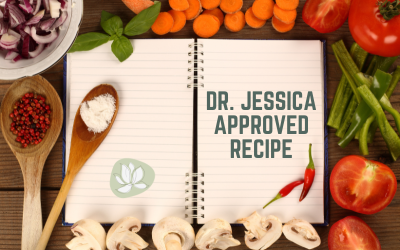In an era where “science” and chemical fertilization has taken over crop rotation and natural fertilization methods, we have seen our minerals within the soil disappear, leading to our food supply’s nutritional value gradually eroding, on top of packaged foods with synthetic coal-based vitamins and little to no food-based value, we are finding many of our patients with simple nutritional deficiencies. Thus, supplements have become increasingly prominent in maintaining our health and well-being.
However, the journey of incorporating supplements into our daily routine is far from the simple task of ingesting a pill. Many of us will Google symptoms, be told that this is a deficiency of XYZ vitamin, and then head to the store to grab this new solution. However, much, if not all, of what you find on the shelves are synthetic versions of that vitamin, not the actual food that the research was on. In a nutshell, we can use vitamins from food without issue, yet our bodies can do nothing with synthetic copies.
Ensuring Safety, Especially with Synthetic Supplements
Despite their attempt to replicate natural counterparts, synthetic supplements can sometimes lead to unforeseen issues. The body might not metabolize synthetic compounds like it processes natural nutrients, potentially resulting in imbalances or unexpected reactions. Also, each vitamin only has a max per-dose limit, so you could be fine if you only take that bottle. Let’s take B12, for example. Perhaps you up this vitamin because you are tired or your doc said to take it. Yet, multiple vitamin bottles, energy drinks, gum, and vitamin water drinks ALL can contain a max dose of B12, and this can quickly add up, causing overdoses that can lead to headache, nausea, vomiting, diarrhea, fatigue, weakness, or tingling sensation in hands and feet. These symptoms can lead to expensive workups and potentially-wrong diagnoses, and unfortunately, it’s all from choices that were self-induced.
Decoding the Label: Your Path to Informed Consumption
The supplement label is supposed to serve as a gateway to understanding what you’re consuming. However, I have found that what is on the label doesn’t reflect the source of where the company obtained or made that vitamin. And this is where we can unknowingly cause more harm than good. I created a download,
Reading Vitamin Labels, to teach people how to read labels and interpret their products to avoid this very issue.
I often tell my patients to do the research, but then to go a step further…search what foods are high in that vitamin, and look to incorporate more of those into their diet. The food is often seasonal, so change the foods as the seasons change. It’s as if someone created a design to keep healthy year-round. 😉
Timing for Maximum Effectiveness
The timing of supplement intake can significantly influence their absorption and effectiveness. Also, you need to know their cofactors, such as apple cider vinegar or digestive enzymes. Take before food, after food, or completely away from food. When the body needs more of a particular supplement, is this helping to activate or control the digestive process, helping to activate or decrease the stress response? Knowing what stimulates or relaxes can be a considerable advantage of having professional help because this can change between children and adults, as hormones also change. Nothing works for everybody (minus eliminating crap food and crap vitamins), leading to complications when we do the same dosing for everyone.
I love starting small and having great success. Other docs come in swinging and create what they call “healing crises.” I’m always a fan of creating good elimination, reliable organ strength and supporting the body’s natural detoxification patterns over forcing an issue on a sick or weakened system. I also like to start small with the top 3-4 supplements or food changes geared to make the biggest change. I’ve seen people walk in with 15-20 supplements, no food changes, and they feel like crap. It’s too much for a weakened system to handle. I always say you show up at a friend’s house with bone broth when they are sick, not a cleaning bucket, and insist we do a deep clean.
If your new regime doesn’t feel right to you, it probably isn’t, and that’s ok to listen to. Doctors should be explaining and listening, not insisting you follow orders.
Proper Storage: Safeguarding Potency
The longevity and potency of supplements are intricately linked to proper storage practices. Following the storage guidelines provided on the supplement packaging is non-negotiable. Some supplements require refrigeration to maintain their integrity, while others need protection from heat, light, or humidity. These guidelines are designed to preserve the supplements’ efficacy, safeguarding your investment in your health. Also, use the smell test – synthetics tend to smell terrible. If you’re opening a bottle and retching, toss it.
The Cruciality of Professional Counsel
I’ve saved my patients hundreds of dollars by sitting with them, reviewing their symptoms, blood work, and saliva tests, and creating a comprehensive action plan. And not everyone needs more testing. I can usually create a comprehensive plan based on my paperwork alone, use the tests you have already completed, or explain why to do something else. The companies I have vetted over the last 30 years are top-notch. They are farms producing the best herbal and nutritional supplements from the land, not the lab. The potency, when compared to store-bought, is phenomenal. Is there anything real in that bottle if you spend $7 for a 90-day supply?
Your Supplementation Journey
Reputable brands are everything in your health journey. Unfortunately, just because they are at the health food stores doesn’t mean they are real. While I only carry certain companies in my office, which you can view
here, I also know we need to have immediate crisis recommendations. For the best results, ensure your supplementation is from food and that your herbs are grown organically and regionally with tested strength to make a difference in your health.
In your pursuit of well-being, I stand ready to address any inquiries or uncertainties you may have regarding supplements. Your health deserves nothing less than a well-informed approach to supplementation. Remember, it is far better to be inquisitive than to accept ignorance.
Today we are going to talk about how you’re poisoning yourself. It’s going to be an uncomfortable conversation, and when we get done, you’re going to be mad. We are going to talk about it anyway.
First of all, when you look at your vitamins, if it is labeled “vitamin,” it is synthetic. Synthetic vitamins are made in labs and do not contain ingredients that our bodies recognize or respond well to.
We must investigate our labels! Have you ever seen vitamin B6 growing on a tree? Have you ever picked vitamin C from your garden? No, vitamins do not occur by themselves in nature. For example, if you see on a label, “vitamin C as ascorbic acid,” you can know that it is a GMO corn syrup, which is problematic for the gut and endocrine system, as it will spike insulin levels and wreak havoc on your digestive system. When we see various B vitamins listed out, they are made from coal. Yes, coal. When we see “calcium carbonate,” we know that it is made from the same stuff as drywall. Yikes, right?!
Why do we even need to take vitamins? One reason we need to supplement is because we have destroyed our soil which once used to be quite nutrient-dense. Soil is where the fruits and vegetables get their minerals from. Another reason is that we are eating fake processed food more than any other generation has before us. Based on other epigenetic studies on nutrition, we won’t see this damage until our grandchildren mature and their health fails. So the bottom line is thtat we do need to supplement because we are no longer teaching people how to eat clean, fresh, organic food; however, if we are putting synthetic vitamins inside of us, it’s still garbage and we can do better. According to research reported in the Annals of Internal Medicine, vitamins were not shown to extend life but may actually shorten it. The study showed that while certain nutrients may increase lifespan, they need to come from food sources, not a bottle or a lab.
So what do we do about this?
We have to be more familiar with which vitamins come from food. Here’s a very short, condensed rundown of a few food sources for some of the most common vitamins, but you have the world at your fingertips and can always search for this on your own.
Foods high in…
So when you come to me and say, “I am taking these vitamins, and they have food in them, so that’s good right?”, I’m going to say, “No, because what they are doing is taking the synthetic garbage, putting it on a yeast bath and growing it, throwing food on it, and then selling you expensive drywall. You’re wasting your money”. With love.
The moment you put something in your mouth, your saliva decides “friend or foe.” When you put a synthetic substance into your mouth, your saliva instantly recognizes a chemical composition and says “foe.” This alerts the body’s stress response, has a negative impact on the digestive tract, and puts the brain (based on your personality and tendencies) on the fight, flight, or freeze path, and you then create emotional stories to manage the stress.
So what do you do now if you want to ensure you are getting the vitamins you need naturally? I have 3 simple steps for you:




Recent Comments